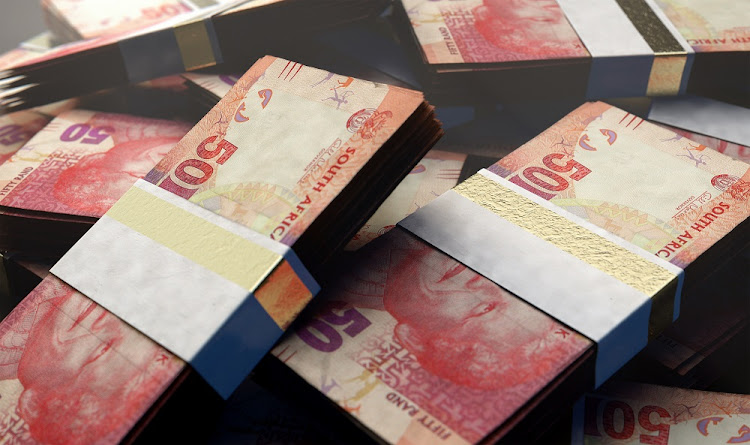Fiscal windfall is no excuse to open the spending taps

With inflation a distinct possibility, the Treasury must preserve its cash balances for unexpected market behaviour
With finance minister Tito Mboweni’s budget coming up next week, questions about SA’s fiscal risks and insolvency have become more frequent. At the same time, by now politicians might know that SA’s cash balances have reached their highest levels on record. The Treasury will probably over-collect tax revenues by R100bn or more than what was projected in the October 2020 medium-term budget policy statement.
However, these fortunate conditions relieving SA’s fiscal bind over the short term do not stem from deliberate actions by the government. As a result, they must not be used as an excuse to open the spending taps, which would leave the country exposed to the market shocks that are gradually developing.
Absa Capital’s Mamokete Lijane wrote about this in these pages this week, pointing out that the government was cash flush to the tune of R378.4bn at the end of January (“Treasury’s cash haul calls for wisdom or we may still go bankrupt”, February 16). In addition, she warned that SA remains a high-risk market over the medium term, an assessment I agree with.
In a different forum, Michael Sachs, the former head of the budget office at the Treasury, remarked that global financing conditions still allow lower borrowing costs because the world is cash flush from global fiscal and monetary policy stimulus, and as such borrowing costs are not an immediate concern.
These views might bring a false sense of normalcy to those who don’t look at these numbers daily, particularly politicians who would like to increase spending on social services. This would be a mistake that would leave the country vulnerable to a potential change in market conditions. The shift in markets is happening already.
I wrote in my column two weeks ago that the risk of a rise in inflation in SA remains low (“Global vaccination drives bring fear of inflation surge”, February 4), and this applies globally. Former US treasury secretary Larry Summers and Nobel laureate Paul Krugman have debated the issue, the former saying the $1.9-trillion fiscal stimulus will lead to inflation, and the latter arguing that given the devastation of Covid to the economy, even if the economy runs hot it will cause only modest inflation.
SA is not in the same position as the effective fiscal stimulus here is about R160bn, not the R500bn announced in 2020. A lot has not flowed into the economy. As I pointed out two weeks ago, the other reason is the rising unemployment and related income shock to the economy, which will keep a lid on inflation. What I did not point out then, which also adds to the muted inflation outlook, is the fact that the velocity of money — broad money supply relative to GDP — has not shown much change from recent trends, a dynamic also visible globally.
While there is a sense of calm on inflation expectations, US interest rates are adjusting faster than we might expect, almost tracking the 2013 taper tantrum. US 10-year swap rates and 10-year forward swap rates have increased by 50 and 100 basis points, respectively, from their 2020 lows, tracking the respective 100 and 150 basis point increases during the 2013 taper tantrum. The difference is that the taper tantrum’s duration was shorter than the current gradual rise. This is not the main point though, which is that US market rates are increasingly pricing in higher inflation, and that’s what matters for global financing conditions to reverse and tighten.
When financing conditions tighten SA must not find itself in a weak financial position that has been preserved with the unexpected tax revenue windfall in the current fiscal year. The overperformance is unlikely to be repeated in the next fiscal year without economic growth significantly picking up, and the Treasury must use some of that windfall to fund the vaccination programme and the extension of the Temporary Employer/Employee Relief Scheme (Ters) and Covid-19 grant.
It must operate as if the windfall does not exist and preserve its cash balances for unexpected market behaviour. The Treasury must demonstrate that it can keep its fiscal framework intact to rebuild some of the credibility it has lost over the past couple of years.
